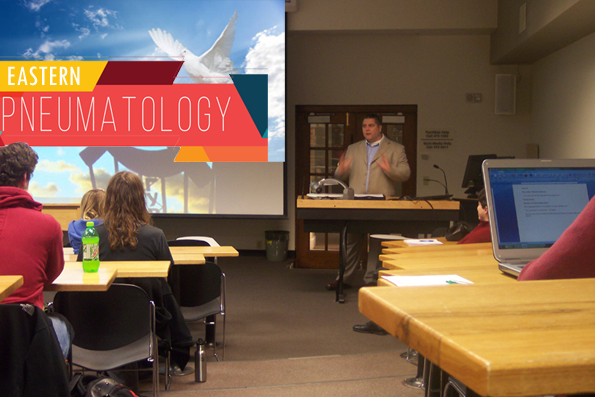Polk Revival to Commence after Months of Prayer
Initially 7, now 8 churches and multiple ministries across the biggest Tennessee county, have set their hearts to seek after the will of God for revival in their area after the pandemic. The meetings are set to move from one church location to another each week of the original seven consecutive week schedule. While Fridays are set as days for prayer and reflection, many already anticipate service will continue through the weekend into the next week’s revival location. As participants have been praying for God’s fresh fire in East Tennessee, many have recalled previous revivals and prophetic words from some hundred years ago to the spontaneous student revival at Lee University this past spring. As new revival outpouring has been long prophesied for the area, the churches have agreed to wait upon the Lord until he moves in their midst again. Prayer is requested from all who love the Lord and have awaited His renewal of the land and His people.
Perry Stone Ministries 2016 THE PROPHECY: In August, over a year ago the Holy Spirit spoke of a “Rural Awakening.” I am certain the primary meaning is that God will spiritually awaken the people in rural areas. However, it was just reported that the RURAL VOTE from the small towns of America, is what won the election for Donald Trump. In the same word, The Holy Spirit has also said the cities will become dangerous with mobs and people would begin leaving the cities to return to the more rural areas in AMerica. George Soros is planning major city disruptions for months or perhaps years to come, and now sadly, there are numerous gangs of black youths in the inner cities that are physically attacking, for no reason, older white men and women; a few even calling for the death of all whites. I regret to say, violence will become more common (days of Noah) and people will slowly begin to leave major cities (violent zones) to move away from the hate and crime in those areas. Those of us in the Body of Christ, White, Black and HIspanic, must not fall into this demonic hatred and deception, but must stand in the unity of our faith in Christ, as one body and one family. Many people who truly love the Lord live in these cities and these gangs and thugs do not represent them or their ethnic group. JESUS IS KING.

The Orthodox Church after AD 1054

Dony K. Donev, D.Min.: Eastern Pneumotology Lectures
Eastern Orthodoxy can be expressed in one word: theism. The purpose and meaning of life is to become more like God. Deification is pursued by all means of human existence. This quest for divine likeness often includes the typical for the Eastern Church, speculation on the divinity and humanity of Christ, traditions on the doctrine of the Trinity and non-traditional mystical experiences. They appear in the context of both physical and spiritual characteristics in individual and corporate ecclesiastical environment. The role of the Spirit in the process of deification is threefold and involves: creation, re-creation and theism. Eastern Pneumotology follows the graduate process of theism development. The Spirit is involved in the original creation of the world as well as the new-birth experience. His work however, does not end there, but continues throughout the process of personal deification of the believer.
The Orthodox Church after AD 1054
The development of Pneumatism, in this latter period, is directly linked to three major political processes in Eastern Europe. The first one was the schism of 1054, after which the unity of the Church would never be the same. The ecclesiastical division, which is based more on the political situation than doctrinal differences officially completed a separation, which had started centuries ago.
The second one includes the mission to the Slavs. What Burgess[1] fails to mention is the fact that the brothers Cyril and Methodius were born in a wealthy Bulgarian family and sent to Thessalonica to be educated early in their lives. After extensive study and research, they were able to invent an alphabetic structure called Glagolitza, which was the first Slavic alphabet. This success was dated as early as 881-882 A.D. Their work was not left unnoted by King Boris I, under who Bulgaria had adopted Christianity twenty years earlier in 863 A.D.[2]
Thus, the work of “Thessalonica brothers,” as they are often called in the Bulgarian tradition, was not only “a great missionary effort,” as Burgess claims, but also rather a patriotic and nationalistic return to their roots in an attempt to adjust Greek ecclesiastical tradition to the needs of Slavs and Bulgarians. Their revolutionary plan included the formation of the Slavic alphabet, which was to be used as an instrument to translate, write and distribute liturgical literature in the language spoken by the Slavs in the land of Bulgaria. With this they not only fulfilled their original purpose, to limit the Greek influence on the Bulgarian Church, but also became a steppingstone in the development of the Bulgarian culture by the means of the written literature.
The last major conflict was the invasion of the united Islamic armies to the Balkans. The Turks were cruel and in their aggression. In a typical Oriental model, their purpose was not only to conquer, but also to exploit the conquered lands. In their attempt to do so, they did not stop to only physical conquest, but attempted to change the culture, religion, customs, ethnos and national belonging of the conquered nations. Thus, preserving Eastern Christianity and Orthodox liturgical practices became the means of survival for the Balkan nations.
The focus in the writings of this period’s pneumatologists is the idea of representation of the Holy Spirit as energy. This belief is so extreme that it leads to the conviction that divine energy is present even at the graves of dead saints.[3] This is in continuation with some of preceding writings from the pre-schism period.
Gregory Palamas (1296-1359) is a major example of this link with the past and preservation of the pneumatic experience. Living in the very beginning of the Turkish conquest over the Balkans and great political changes, Palamas wrote that the only way to know God is through an inner change, a transfiguration done only by the Spirit of God.[4]
This act is the initiation of deification. The Holy Spirit is viewed as light in the process of edifying the church.[5] The believers are instruments in the hands of God.[6] They are led by the Spirit through the means of the spiritual gifts, which Palamas reports as possible and active in his days. He further lists three different categories of gifts: word of instruction, healing and miracles. The gifts are obtained only through “intense mental prayer.” Laying on of hands, after the example of the apostle Paul, is also required.[7]
At the same historical moment, similar position is supported by Nicholas Cabasilas (1320-1371). While differs from Symeon the New Theologian, that there’s a special experience outside of the established sacraments, Cabasilas reports the practice of spiritual gifts.[8] He also claims that gifts are signs for the power of God being active in the world. The church is to partake into the gifts and enjoy the presence of the Holy Spirit.[9]
Palamas’ prime mystical focus, however, is on the essence and energies of the Holy Spirit. He claims that God is known through energies, and not essence.[10] Similar position is taken by Irenaeus[11] and Athenagoras[12] as early as the second century. Basil,[13] Gregory of Nissa,[14] and later on Pseudo-Dionisius[15] and Maximius the Confessor[16] also distinguish understanding of God between energy and essence. Thus, through this position, Palamas becomes a preserver of centuries of theological research and experience, and provides a link with the doctrinal past of the early Eastern Church.
Seraphim Sarov has a similar role. Sarov lives in the later part of this period in eighteenth century feudal Russia. Although, his surrounding is primarily monastic, limited by Eastern sacramental tradition and severe ascethism, his experiences are of intense mystical nature and divine inspiration. For Sarov, the purpose of Christian life is “acquisition” of the Holy Spirit.[17] The Spirit is to be acquired as “a financial reserve,” which is done through prayer and is available to both monks and laity.
Both the idea of financial reserve and equality between clergy and laity are definitely reflect on the present situation in Russia during the time of Sarov. While the former is clearly a reflection on the economical crises in the monarchy, the latter reflects on the structural, hierarchical crisis of the Russian church. The above ideas are both prophetic and revolutionary, especially viewed in the context of the Bolshevik Revolution, which follows shortly after being published by Nicholas Motovilov in a 1903 issue of Moscow Gazette.
The above publications are our main source of Sarov’s experiences. They are recorded as a conversation one of Motovilov’s visit in November 1831.[18] The climax of this conversation is a moment of transfiguration of both Sarov and his guest. The glory of the Lord was visible as light. This was explained as grace viewed through eyes of flesh. The experience was accompanied with odours and “joy inexpressible.”[19] This encounter is analogical to the experiences “untold ecstasy” and sweet smell portrayed by Pseudo-Macarius and Symeon the New Theologian.[20] Sarov further related the transfiguration experience as what Pseudo-Macarius claimed to be the fullness of the Spirit. It is interesting to notice, that the pneumatic experiences Sarov had were not only a preservation of the experiences of pneumtaics prior to his time, but also a reflection of his present political and economical surroundings.
[1] Burgess, 67.
[2] Milcho Lalkov, Rulers of Bulgaria (Sofia: Kibea Publishing Co., 1995), 21.
[3] Carmino J. deCatanzaro, Nicholas Cabasilas: The Life of Christ (Crestwood: St. Vladimir’s Seminary Press, 1974), 106-7.
[4] Burgess, 71.
[5] Ibid.
[6] John Meyendorff: Gregory Palalmas: The Triads (Ramsey: Paulist Press, 1983), 88.
[7] Ibid., 52-53.
[8] Burgess, 77.
[9] deCatanzaro, 107.
[10] Ibid, 77-111.
[11] Fragment 5, PG 7:col. 1232.
[12] On the Resurrection 1.
[13] Letter 234, PG 32:col. 869.
[14] Against Eunomius 12 PG 14:col. 960.
[15] On the Divine Names 2.7, PG 3:col. 645.
[16] To Nikandros, PG 91:col. 96.
[17] Burgess, 79.
[18] Valentine Zander, St. Seraphim of Sarov, trans. by Gabriel Anne and Boris Bobrinovsky (Crestwood: St. Vladimir’s Seminary Press, 1963), 83-94.
[19] Ibid. 95.
[20] John Cassian, Collationes 4.5, PL 49:col. 589.
30 Years after Communism…
The Fall of the Berlin Wall was on the evening of November 9, 1989

30 years in 60 seconds at the red-light…
I’m driving slowly in the dark and raining streets of my home town passing through clouds of car smoke. The gypsy ghetto in the outskirts of town is covered with the fog of fires made out of old tires burning in the yards. And the loud music adds that grotesque and gothic nuance to the whole picture with poorly clothed children dancing around the burnings.
The first red light stops me at the entrance to the “more civilized” part of the city. The bright counter right next to it slowly moves through the long 60 seconds while tiredly walking people pass through the intersection to go home and escape the cold rain. The street ahead of me is already covered with dirt and thickening layer of sleet.
This is how I remember Bulgaria of my youth and it seems like nothing has changed in the past 30 years.
The newly elected government just announced its coalition cabinet – next to a dozen like it that had failed in the past two decades. The gas price is holding firmly at $6/gal. and the price of electricity just increased by 10%, while the harsh winter is already knocking at the doors of poor Bulgarian households. A major bank is in collapse threatening to take down the national banking system and create a new crisis much like in Greece. These are the same factors that caused Bulgaria’s major inflation in 1993 and then hyperinflation in 1996-97.
What’s next? Another winter and again a hard one!
Ex-secret police agents are in all three of the coalition parties forming the current government. The ultra nationalistic party called “ATTACK” and the Muslim ethnic minorities party DPS are out for now, but awaiting their move as opposition in the future parliament. At the same time, the new-old prime minister (now in his second term) is already calling for yet another early parliamentarian election in the summer. This is only months after the previous elections in October, 2014 and two years after the ones before them on May 2013.
Every Bulgarian government in the past 30 years has focused on two rather mechanical goals: cardinal socio-economical reforms and battle against communism. The latter is simply unachievable without deep reformative change within the Bulgarian post-communist mentality. The purpose of any reform should be to do exactly that. Instead, what is always changing is the outwardness of the country. The change is only mechanical, but never organic within the country’s heart.
Bulgaria’s mechanical reforms in the past quarter of a century have proven to be only conditional, but never improving the conditions of living. The wellbeing of the individual and the pursuit of happiness, thou much spoken about, are never reached for they never start with the desire to change within the person. For this reason, millions of Bulgarians and their children today work abroad, pursuing another life for another generation.
The stop light in front of me turns green bidding the question where to go next. Every Bulgarian today must make a choice! Or we’ll be still here at the red light in another 30 years from now…
25 Years after Communism…
 25 years in 60 seconds at the red-light…
25 years in 60 seconds at the red-light…
I’m driving slowly in the dark and raining streets of my home town passing through clouds of car smoke. The gypsy ghetto in the outskirts of town is covered with the fog of fires made out of old tires burning in the yards. And the loud music adds that grotesque and gothic nuance to the whole picture with poorly clothed children dancing around the burnings.
The first red light stops me at the entrance to the “more civilized” part of the city. The bright counter right next to it slowly moves through the long 60 seconds while tiredly walking people pass through the intersection to go home and escape the cold rain. The street ahead of me is already covered with dirt and thickening layer of sleet.
This is how I remember Bulgaria of my youth and it seems like nothing has changed in the past 25 years.
The newly elected government just announced its coalition cabinet – next to a dozen like it that had failed in the past two decades. The gas price is holding firmly at $6/gal. and the price of electricity just increased by 10%, while the harsh winter is already knocking at the doors of poor Bulgarian households. A major bank is in collapse threatening to take down the national banking system and create a new crisis much like in Greece. These are the same factors that caused Bulgaria’s major inflation in 1993 and then hyperinflation in 1996-97.
What’s next? Another winter and again a hard one!
Ex-secret police agents are in all three of the coalition parties forming the current government. The ultra nationalistic party called “ATTACK” and the Muslim ethnic minorities party DPS are out for now, but awaiting their move as opposition in the future parliament. At the same time, the new-old prime minister (now in his second term) is already calling for yet another early parliamentarian election in the summer. This is only months after the previous elections in October, 2014 and two years after the ones before them on May 2013.
Every Bulgarian government in the past 25 years has focused on two rather mechanical goals: cardinal socio-economical reforms and battle against communism. The latter is simply unachievable without deep reformative change within the Bulgarian post-communist mentality. The purpose of any reform should be to do exactly that. Instead, what is always changing is the outwardness of the country. The change is only mechanical, but never organic within the country’s heart.
Bulgaria’s mechanical reforms in the past quarter of a century have proven to be only conditional, but never improving the conditions of living. The wellbeing of the individual and the pursuit of happiness, thou much spoken about, are never reached for they never start with the desire to change within the person. For this reason, millions of Bulgarians and their children today work abroad, pursuing another life for another generation.
The stop light in front of me turns green bidding the question where to go next. Every Bulgarian today must make a choice! Or we’ll be still here at the red light in another 25 years from now…








